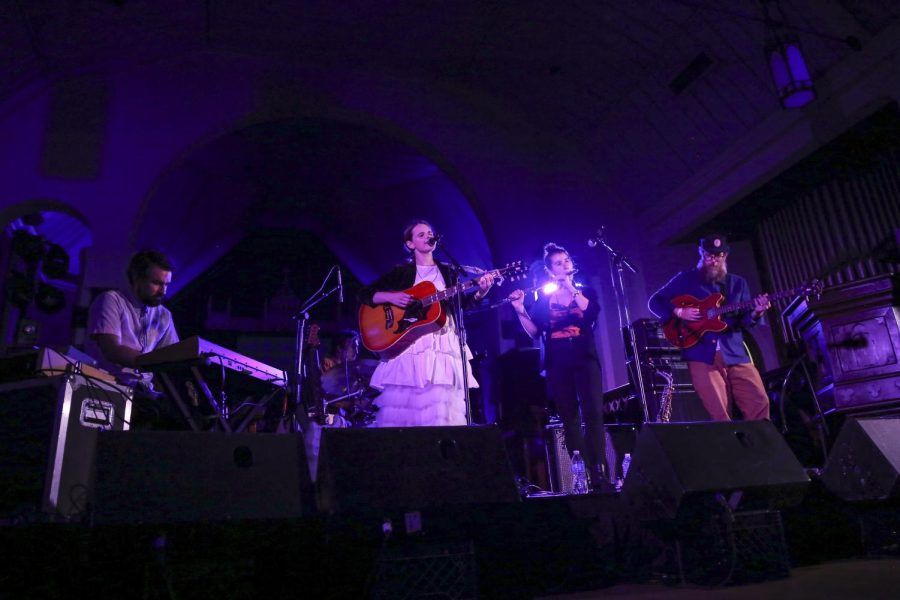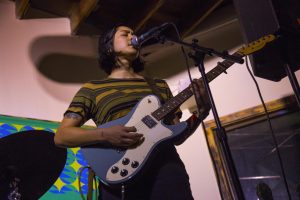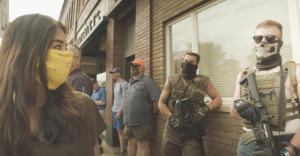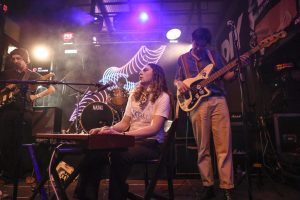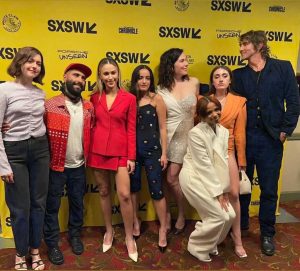Cassandra Jenkins shares sources of inspiration, self realizations from songwriting
March 18, 2022
While exploring an exhibit at The Metropolitan Museum of Art, singer-songwriter Cassandra Jenkins took out her phone to record her conversation with a security guard, dawning the concept for her second album “An Overview on Phenomenal Nature.”
The Brooklyn-based SXSW performer sat down with The Daily Texan to discuss childhood home concerts, backstories behind her songs and lessons she took away from writing her record.
The Daily Texan: As someone who was raised by musicians, do you think your parents and the people surrounding your childhood influenced the type of music you make now?
Cassandra Jenkins: The main thing that stuck with me from my family is the intimacy in which we performed music. For about 20 years, we hosted concerts in our home. They were gatherings of about 60 to 100 people at its most packed. We were doing that up until March 8, 2020. I got to try out new songs in those settings and do a lot of almost vaudevillian, parlor style performances. I feel amazed, as I start to play bigger and bigger rooms, how much you can actually bring that intimacy to a room of 2000 people. It’s still possible.
DT: What did you realize about yourself in the process of making “An Overview on Phenomenal Nature” and did your approach to songwriting change?
CJ: I love being an observer. One of my goals in life is to be a better listener. There’s so much to learn from people and strangers. The more I travel and ]get to meet people, the more I learn how to … make someone feel comfortable enough to share themselves with me. There’s so much mystery involved in creating something, and the less I try to control it, the better. Whether it’s the outcome of a release … or (my) schedule at SXSW and wanting sound to be perfect, the more I can accept things as they are, the more I can enjoy them. This album was a wonderful exercise in giving up control.
DT: The song “Hard Drive” opens with a monologue from a security guard. Can you tell me the backstory behind that monologue?
CJ: The security guard was, in many ways … the seed of the album. That was during this time in my life when I was going through a lot of unexpected changes. I was looking at the next three months of my life not knowing what I was doing, so I just started traveling, writing, seeing friends and immersing myself in my life. I went to a lot of art galleries at the time with a few of my friends, and one of them was at the Met. We were seeing the exhibit “Phenomenal Nature.” Out of nowhere, the security guard there started talking to me, and she said, “I want to tell you about this exhibit.” She talked to me for a good 10 minutes about the museum exhibit and then (shared) a personal monologue of her thoughts on nature, art, sculpture, feminism and politics. That happens in a lot of conversations — someone is asking you a question, but really they’re reflecting something about themselves.
DT: Did creating this album and observing others change your outlook on the world?
CJ: If I learned anything from that experience, (it was that) we can all get better at being present for other people. The greatest gift you can give someone is your attention. Sometimes I think to write (conversations) down, and sometimes it’s just getting through the day and hopefully leaving a good impression with someone just by being kind and being there with them.

